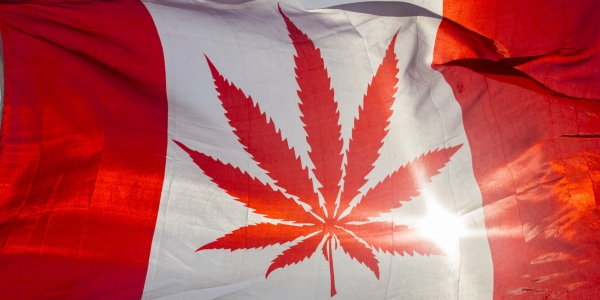Quebec’s proposed legislation regarding the regulation of marijuana—set to be legalized federally on July 1, 2018—will likely be the harshest in the country, amassing much criticism since it was tabled on Nov. 16. On one side, the Quebec Liberal Party has come under attack from news sites, such as Vice, and marijuana activists for being too strict; on the other, opposing parties, like the Coalition Avenir Quebec (CAQ), have called Bill 157 too permissive. Yet, as they stand, Quebec’s proposed weed laws strike an advantageous balance between mitigating the potentially dangerous aftershocks of marijuana legalization—like a spike in youth consumption and DUIs—and being liberal enough to accommodate for responsible consumers and decrease the incentive for the retention of a significant black market. Bill 157 is strict, but not without reason.
The key specifics of the bill include a legal age of 18, zero tolerance for driving under the influence, no unregulated growing, a possession limit of 150 grams per person, and no privatization. In a province where only 46 per cent of the population supports marijuana legalization—compared to 54 per cent nationally—it’s not surprising that the specifics of weed’s transition into the legal market are controversial.
One of the major issues raised by the CAQ is the proposed legal age. The evidence of weed’s detrimental effects on the growing brain’s mental health, neurocognitive performance, and neurological structure are well documented; therefore, the CAQ has advocated for raising the minimum legal age to 21. Yet, given the disproportionate percentage of marijuana users between the ages of 18-22, making the legal age 21 would only encourage black market distribution—and all of the potential health and crime issues that surround it. These include the addition of potentially dangerous adulterants to weed, and violent distribution rivalries. The Quebec Liberal Party’s proposed legislation concedes that young people will inevitably smoke, regardless of legality. By not making the legal age too high, it improves the government’s ability to ensure health standards for young smokers.
Unlike Alberta, Quebec has rejected the privatization of the marijuana dispensary industry, instead opting for full government control. The weed-friendly side of the debate has deemed this measure draconian. Jodi Emery, marijuana activist and co-owner of Cannabis Culture Magazine, is quoted in the National Post as saying that Bill 157 “sounds like prohibition” and “denies Quebec residences many of their different rights and freedoms.” Yet, citizens benefit because the Quebec government will retain its power over the sale of marijuana, and therefore be able to more successfully limit underage consumption and regulate safety standards, such as THC and CBD content levels, the main psychoactive ingredients in cannabis.
Also to its credit, Quebec has categorically banned unregulated marijuana growth for personal use, and has set the legal possession limit at 150 grams, but these stipulations have incensed both those who believe the bill is too strict and those who argue it’s too permissive. Marijuana activists say that this will cause unnecessary criminalization, while CAQ justice critic Simon Jolin Barrette says the 150-gram limit is too high. Ultimately, legalizing weed—and normalizing its consumption—will almost certainly cause an increase in its use among people younger than 18. If people are allowed to grow their own weed or possess large amounts, then it would likely fuel that market.
Regarding driving under the influence, the province has declared that there will be zero tolerance. While this may seem unnecessarily punitive given that there is a legal limit for drinking and driving above zero, marijuana affects people differently, making it difficult to determine a standard legal limit. Therefore, severe DUI laws are critical for limiting the threat of increased weed-related collisions.
Despite the vehement opposition it has faced, Quebec’s proposed legislation for the regulation of legal weed is thoroughly socially responsible. Bill 157 mitigates the risk of a persistent and significant black market, does nothing to impede reasonable consumption, and gives the provincial government the most possible power to ensure public health and safety. While the laws are undeniably strict, they are necessary to limit the negative effects of a likely explosion in marijuana consumption. While more lenient laws may be appropriate in the future, as people acclimatize to the availability of marijuana, Quebec—and Canada as a whole—is not yet culturally prepared for more liberal weed regulations.










The specter of carnage on the road following cannabis legalization is propaganda from prohibitionists. Cannabis is not being invented, just legalized–people have been driving stoned for decades. And the level of impairment from cannabis that is criminalized should be the same as the level of impairment for the .08 blood alcohol level.
That being said, no one should drive impaired, but actual impairment should be measured, not just exposure to a drug. Per se levels of THC in the blood have no scientific basis, according to the US NHTSA.
I have developed a new public health app that measures actual impairment–it is called DRUID (an acronym for “DRiving Under the Influence of Drugs”) available now in the Apple App Store and in Google Play for the Android. DRUID measures reaction time, decision making, hand-eye coordination, time estimation and balance, and then statistically integrates hundreds of data points into an overall impairment score. DRUID takes just 2 minutes.
Our website is http://www.druidapp.com
DRUID allows cannabis users (or others who drink alcohol, use prescription drugs, etc.) to self-assess their own level of impairment and (hopefully) decide against driving if they are impaired. Prior to DRUID, there was no way for an individual to accurately assess their own level of impairment. DRUID also demonstrates that it is feasible to measure impairment reliably by the roadside, not just exposure to a drug. It could also be a way for cannabis users who have developed tolerance to show they are unimpaired.
DRUID was featured on NPR’s All Things Considered: http://www.npr.org/2017/01/25/511595978/can-sobriety-tests-weed-out-drivers-whove-smoked-too-much-weed
Also on television: http://sacramento.cbslocal.com/2017/02/28/science-lags-behind-marijuana-impairment-testing/
After obtaining my Ph.D. at Harvard, I have been a professor of psychology at UMass/Boston for the past 40 years, specializing in research methods, measurement and statistics.
Michael Milburn, Professor
Department of Psychology
UMass/Boston